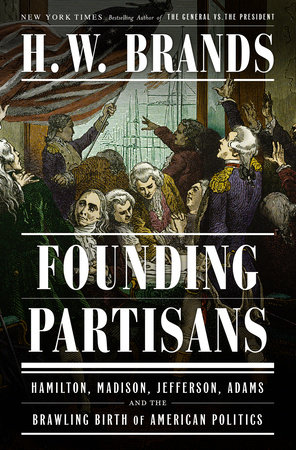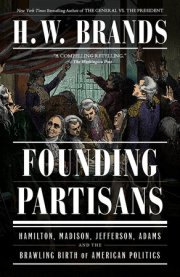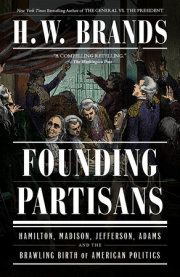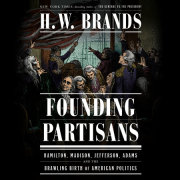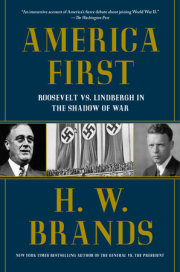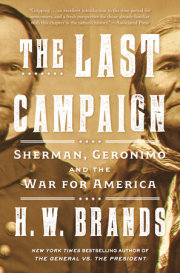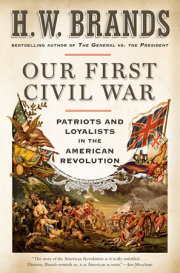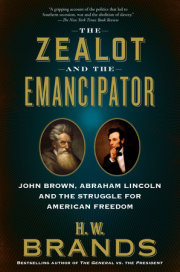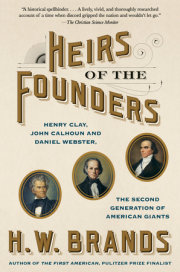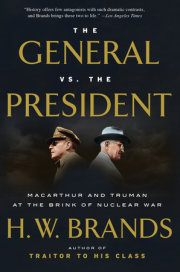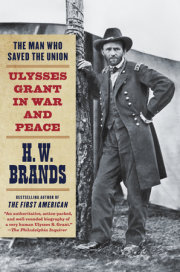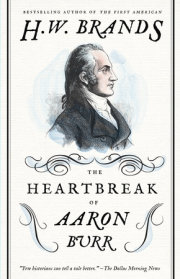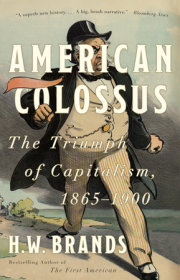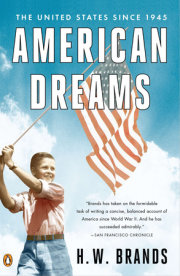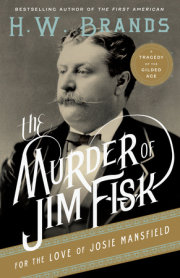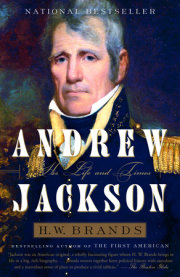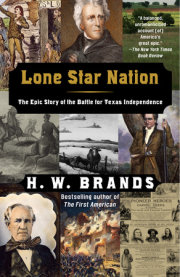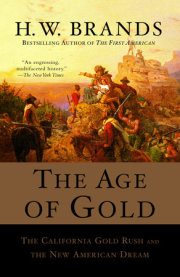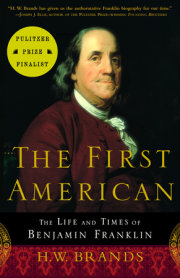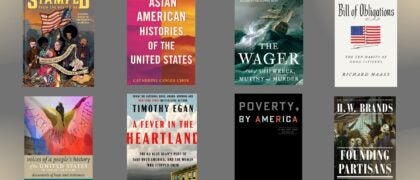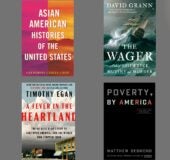part I
The Making of a Continentalist
1
Alexander Hamilton hadn’t intended to father a party and then subvert it; his first goal in politics had been to reform the Continental Congress. Hamilton granted Congress credit for declaring independence from Britain in 1776, but in the war that followed, it did more harm than good, he judged. Its members were idiots, or at least behaved that way. “Folly, caprice, a want of foresight, comprehension and dignity characterize the general tenor of their actions,” Hamilton asserted in a letter to George Clinton, the governor of New York, in February 1778.
Hamilton was writing from the headquarters of the Continental Army at Valley Forge amid the worst winter of the Revolutionary War. He had got there by talent and audacity. Born in the West Indies, abandoned by his father, effectively orphaned by the death of his mother, Hamilton had found his way to New York in his teens. He developed a knack for impressing men who could promote his career. George Clinton was one; George Washington was another. Hamilton was clearly going places; at this point he was aide-de-camp to Washington.
“Their conduct with respect to the army especially is feeble, indecisive and improvident, insomuch that we are reduced to a more terrible situation than you can conceive,” Hamilton said to Clinton about the members of Congress. They were starving the army. “By injudicious changes and arrangements in the commissary’s department in the middle of a campaign, they have exposed the army frequently to temporary want, and to the danger of a dissolution from absolute famine.” The situation grew more dire by the day. “Desertions have been immense, and strong features of mutiny begin to show themselves,” Hamilton observed. “If effectual measures are not speedily adopted, I know not how we shall keep the army together or make another campaign.”
Clinton couldn’t tell to what degree Hamilton was speaking for Washington. The sentiments seemed like those of Washington, who too had complained about Congress. But the language was more forthright, indeed disdainful. Like Washington, Clinton had been charmed by Hamilton, but the governor must have asked himself where this brash young immigrant—Hamilton said he was twenty-one; some other evidence suggests twenty-three—had got the idea he knew the business of America’s Congress better than its own members did.
Of course he read on. Hamilton explained that even while Congress failed to provide for the rank and file of the army, it let itself be bamboozled by those it made into officers, especially foreigners. “They have disgusted the army by repeated instances of the most whimsical favouritism in their promotions, and by an absurd prodigality of rank to foreigners and to the meanest staff of the army,” Hamilton wrote. The foreign officers took advantage of the opportunities Congress afforded them. “It is become almost proverbial in the mouths of the French officers and other foreigners that they have nothing more to do to obtain whatever they please than to assume a high tone and assert their own merit with confidence and perseverance.”
Hamilton wondered what had become of the distinguished body of 1776. “America once had a representation that would do honor to any age or nation,” he told Clinton. “The present falling off is very alarming and dangerous.” Where had the great men gone? “Are they dead? Have they deserted the cause?” Hamilton supplied his own answer: “Very few are dead and still fewer have deserted the cause; they are all except the few who still remain in Congress either in the field or in the civil offices of their respective states.”
Hamilton perceived a baneful competition between the states and the central government for talent. The states were winning. “Each state, in order to promote its own internal government and prosperity, has selected its best members to fill the offices within itself and conduct its own affairs,” he said. Congress had done nothing to counter the appeal of the states. “This is a most pernicious mistake and must be corrected.”
Hamilton struck a note he would play without pause for the rest of his life: the nation must come before the states. “However important it is to give form and efficiency to your interior constitutions and police,” he said to Clinton, referring to the states generally, “it is infinitely more important to have a wise general council.” If the central government failed, the states would follow. “You should not beggar the councils of the United States to enrich the administration of the several members.”
The results of state preference brought the country into disrepute, domestically and especially overseas, Hamilton said. “Realize to yourself the consequences of having a Congress despised at home and abroad. How can the common force be exerted if the power of collecting it be put in weak foolish and unsteady hands? How can we hope for success in our European negotiations if the nations of Europe have no confidence in the wisdom and vigor of the great continental government?”
At last Hamilton acknowledged that he might be speaking out of place. He was, after all, merely an aide-de-camp. He relied on Governor Clinton’s discretion. “The sentiments I have advanced are not fit for the vulgar ear, and circumstanced as I am, I should with caution utter them except to those in whom I may place an entire confidence.”
As the harrowing winter passed, Hamilton grew more impatient with Congress, which appeared bent on spoiling what it didn’t neglect. “Shall I speak what seems to me a most melancholy truth?” he wrote to Clinton in March. “It is this—that with the most adequate means to ensure success in our contest, the weakness of our councils will, in all probability, ruin us.” Congress had tacitly accepted an untruth circulated by the British that Washington was forcing British prisoners to turn coat. “This silences all our complaints against the enemy for a similar practice, and furnishes them with a damning answer to anything we can say on the subject,” Hamilton said.
Congress meddled in the exchange of prisoners. “Lately a flag, with provisions and clothing for the British prisoners, with General Washington’s passport, was seized at Lancaster,” Hamilton reported. “The affair was attended with circumstances of violence and meanness that would disgrace Hottentots. Still more lately, General Washington’s engagements with General Howe for an exchange of prisoners have been most shamefully violated.” Hamilton granted that opinions could differ on the wisdom of exchanges. “But, admitting this to be true, it is much worse policy to commit such frequent breaches of faith and ruin our national character. Whatever refined politicians may think, it is of great consequence to preserve a national character.”
Reputation meant a great deal to Hamilton as a young man on the make. Introducing another theme that would mark his career, he declared that reputation should mean no less to the government of a country struggling for its very existence. “The general notions of justice and humanity are implanted in almost every human breast and ought not to be too freely shocked,” he said. If Washington struck a deal with Howe on prisoners, Congress should honor it. America would stand or fall according to the enthusiasm of the American people for the common cause. “I would ask whether in a republican state and a republican army such a cruel policy as that of exposing those men who are foremost in defence of their country to the miseries of hopeless captivity can succeed.”
Hamilton again acknowledged that he might be speaking out of turn. But he couldn’t not speak. “I dwell upon the faults of Congress because I think they strike at the vitals of our opposition”—to Britain—“and of our future prosperity,” he said. “I cannot but wish that every gentleman of influence in the country should think with me.”
Hamilton was no idle complainer; he rarely criticized without proposing remedies. Appalled by the fecklessness of Congress, he at once considered how the institution might be improved. He discussed the matter with James Duane, a New York lawyer and member of Congress; Duane was sufficiently intrigued by Hamilton’s thinking to ask him to elaborate.
“The fundamental defect is a want of power in Congress,” Hamilton declared. He identified three causes. First: “an excess of the spirit of liberty,” which made the states jealous of any powers claimed by Congress. Second: “a diffidence in Congress of their own powers,” by which that central body had got in the habit of deferring to the states. Third: “a want of sufficient means at their disposal to answer the public exigencies.” Here the rub was the inability of Congress to levy taxes on the people; instead it could merely make requests to the states.
Hamilton didn’t blame Congress itself entirely. “It may be pleaded that Congress had never any definitive powers granted them and of course could exercise none,” he wrote. Yet he wasn’t going to let Congress off the hook. The members should have seized power wherever plausible. “They should have considered themselves as vested with full power to preserve the republic from harm.” They had declared independence, after all, and were conducting a war. What greater marks of sovereignty were there? Congress should have pushed further into the gray area beyond what was expressly authorized. “Undefined powers are discretionary powers, limited only by the object for which they were given: in the present case, the independence and freedom of America.”
The problem, though, ran deeper than the diffidence of the members of Congress. “The confederation itself is defective and requires to be altered,” Hamilton told Duane. “It is neither fit for war nor peace.” So long as the central government was a mere confederation of sovereign states, it would be no government at all. “The idea of an uncontrollable sovereignty in each state over its internal police”—its internal affairs—“will defeat the other powers given to Congress and make our union feeble and precarious.”
In no area did the authority of the states intrude more worrisomely than in the operation of the army. “They should have nothing to do with it,” Hamilton said. “The entire formation and disposal of our military forces ought to belong to Congress. It is an essential cement of the union.”
Hamilton anticipated objections to his demand for greater central power. “It may be apprehended that this may be dangerous to liberty,” he said. But especially in the current crisis, nothing could be more fatuous. “We run much greater risk of having a weak and disunited federal government than one which will be able to usurp upon the rights of the people.”
The existence of the states would forever make America’s collective existence precarious. “The forms of our state constitutions must always give them great weight in our affairs and will make it too difficult to bend them to the pursuit of a common interest, too easy to oppose whatever they do not like and to form partial combinations subversive of the general one,” Hamilton predicted. History revealed the fragility of confederations. The leagues of the Greek republics ought to be a cautionary example for America. “They were continually at war with each other and for want of union fell a prey to their neighbours,” Hamilton said. “At length they sunk entirely into contempt.”
Modern times corroborated the principle. “The Swiss cantons are another proof of the doctrine,” Hamilton said. “They have had wars with each other which would have been fatal to them had not the different powers in their neighbourhood been too jealous of one another and too equally matched to suffer either to take advantage of their quarrels.” America’s confederation of states would have no such external props. “We are so remote from other nations that we shall have all the leisure and opportunity we can wish to cut each others’ throats.”
Finance would become a fascination with Hamilton. His interest surfaced early. Distributed financial authority was ruining America, he told Duane. “The confederation too gives the power of the purse too entirely to the state legislatures.” A government that didn’t control its own revenues couldn’t control anything. This was where reform of the confederation must begin. “It should provide perpetual funds in the disposal of Congress, by a land tax, poll tax, or the like. All imposts upon commerce ought to be laid by Congress and appropriated to their use.” The principle was the most basic in all politics. “That power which holds the purse strings absolutely must rule.”
National finance must be controlled by a more powerful national executive. “Congress have kept the power too much into their own hands and have meddled too much with details of every sort,” Hamilton said. “Congress is properly a deliberative corps and it forgets itself when it attempts to play the executive.” With no separate executive branch—the president was chosen by Congress—there was neither independent energy nor collective memory. “It is impossible such a body, numerous as it is, constantly fluctuating, can ever act with sufficient decision or with system.” Most members didn’t know enough to act wisely; the others were too corrupt to act honestly.
How to effect his desired reforms? Hamilton proposed “a convention of all the states with full authority to conclude finally upon a general confederation, stating to them beforehand explicitly the evils arising from a want of power in Congress, and the impossibility of supporting the contest”—the war—“on its present footing, that the delegates may come possessed of proper sentiments as well as proper authority to give to the meeting.”
Hamilton grew more specific. “The Convention should assemble the 1st of November next”—November 1, 1780—“the sooner, the better; our disorders are too violent to admit of a common or lingering remedy.” The goal of the convention should be to bolster the central government at the expense of the states. Hamilton identified the powers Congress should be given: to conduct war, form alliances, levy taxes, control trade, coin money, establish banks and do all the other things any self-respecting sovereign government could do.
In this letter to Duane, Hamilton conceded that he was asking a lot—likely more than the American people were willing to accept at once. Yet he had a plan for that too: a campaign of propaganda to bring them around. “If a convention is called, the minds of all the states and the people ought to be prepared to receive its determinations by sensible and popular writings,” he said. The very audacity of his proposal should work in its favor. “There are epochs in human affairs when novelty even is useful.” The people wanted change. “ ‘Tis an universal sentiment that our present system is a bad one,” he said. “A convention would revive the hopes of the people and give a new direction to their passions.”
Hamilton hoped to be the one to provide that new direction. Timing and presentation would make all the difference. “Men are governed by opinion; this opinion is as much influenced by appearances as by realities,” he said. Fortune favored the bold. “If a government appears to be confident of its own powers, it is the surest way to inspire the same confidence in others.”
Copyright © 2023 by H. W. Brands. All rights reserved. No part of this excerpt may be reproduced or reprinted without permission in writing from the publisher.

